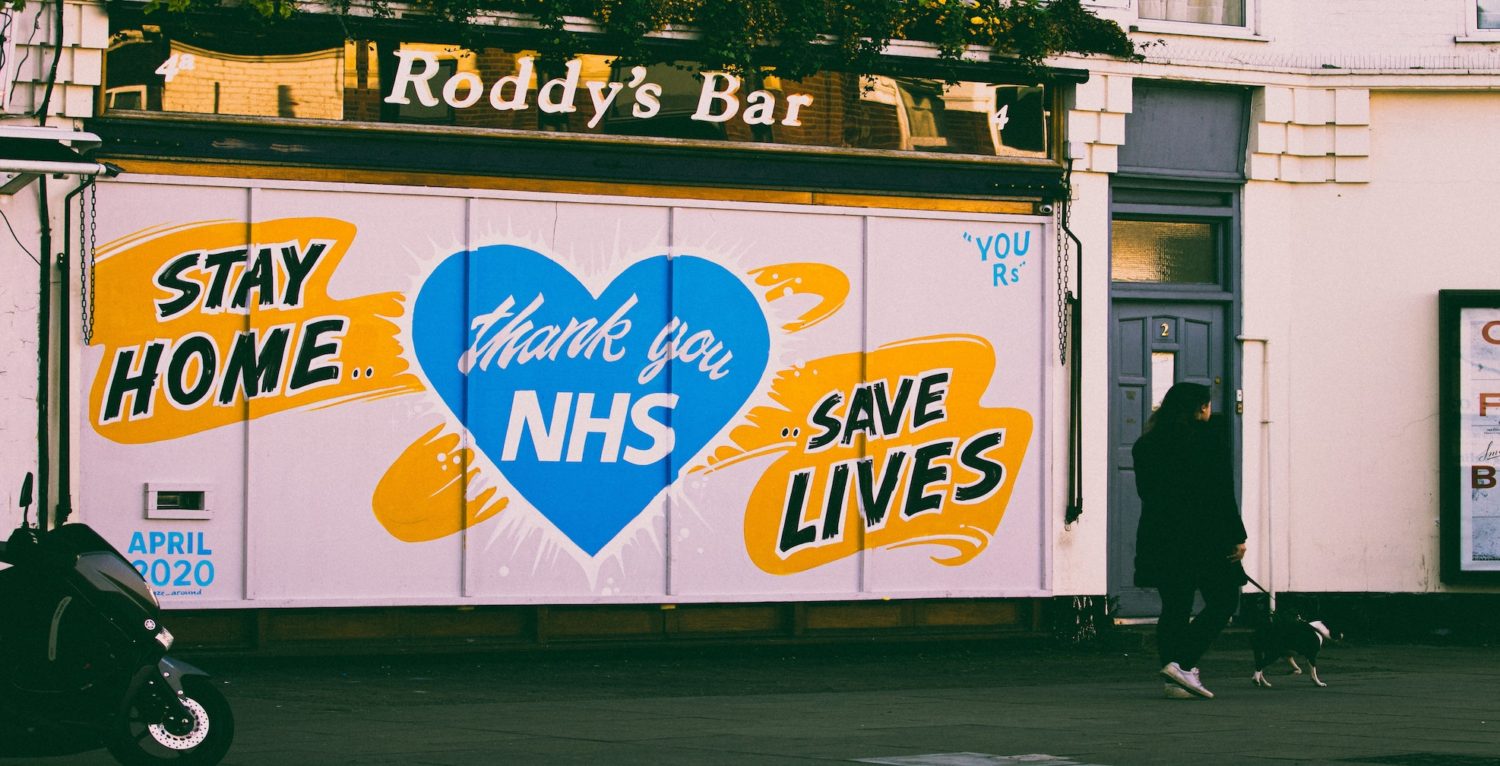Empty gestures
Instead of clapping, we need a properly funded NHS and more global collaboration, writes Gabrielle Pickard Whitehead.
The clap for carers ritual that took place each Thursday evening for 10 weeks and ended on May 28, returned for one week only. This Sunday 5 July, people headed to the doorstep once more to mark the 72nd birthday of the NHS.
The patriotic act was designed to show solidarity and that “we’re all in this together.” It was morale-boosting for some. But others viewed the Conservative MPs partaking in the weekly clap and the promotion of ‘our NHS’ – as Boris Johnson proudly labels it – hypocritical; an empty gesture amid cuts to the NHS and less than 20 MPs turning up to debate a payrise for health and social care workers on 25 June. It is also worth remembering that the creation of ‘our NHS’ was voted down 21 times by Winston Churchill’s Conservative government in the 1940s. Consecutive Tory governments have increasingly privatised the NHS and many who work there are underpaid.
During the coronavirus crisis, national pride has been lionised by the Conservatives. But it has been a dangerous and ineffective response: the UK’s coronavirus death rate has been the highest in Europe.
In an article about why some health workers have had enough of the weekly clap, an NHS doctor wrote: “[the clapping] is a sentimental distraction from the issues facing us.” Indeed, the clap distracted from a more productive way to tackle this pandemic: through a collaborative global response.
People’s basic needs, such as health, food and shelter, are best met when global leaders work together – especially at times of crisis.
Global collaboration proved to be an effective response to the outbreak of the West African Ebola virus. In July 2014, the World Health Organization (WHO) announced collaboration with 11 different countries on a strategy to coordinate support to combat the pandemic and, by September 2014, a huge international response to the crisis was underway. In July 2018, following the end of the ninth outbreak of Ebola in the Democratic Republic of the Congo, the WHO congratulated the international efforts to successfully end the outbreak.
At the time, WHO called for global efforts to stop other deadly outbreaks. Sadly, with Covid-19, we have not seen enough global collaboration to reduce the spread and impact of the disease.
Instead, we have seen fractures in international cooperation and a rhetoric of hostility being directed towards those deemed responsible for the spread of the virus.
This can be seen in France and Germany. Both countries banned the export of protective masks and other personal protective equipment. The move was criticised for dissenting from the spirit of the EU, with top EU officials calling for solidarity among member countries in the face of coronavirus.
A culture of blame, antagonism, patriotism and deliberately cutting off ties with other nations is blatant, but sadly expected, from Donald Trump. On top of the aggressive labelling of the pandemic as the “Chinese virus” to whip up a culture of hostility towards China, Trump has been quick to undermine multilateral alliances. Rather than encouraging the collective, global scientific approach the pandemic desperately needs, Trump has terminated relations with WHO and removed funding from an America research institute because they worked with Chinese scientists. This hostile, irresponsible, “shooting yourself in the foot” reaction has isolated the US.
In response to Trump’s tactics, Stephen Walt, professor of international relations at Harvard, summed up the sentiment felt towards the US President: “The Trump administration’s self-centred, haphazard, and tone-deaf response [to Covid-19] will end up costing Americans trillions of dollars and thousands of otherwise preventable deaths,” Walt wrote.
While the Johnson administration’s response might not seem as irresponsible as Trump’s, it is just as dangerous. The prime minister has offered no apology for the serious mistakes his government had made in the response to the health crisis, including doing little to prevent the high death rates in the country’s care homes and the shambolic procurement of personal protective equipment. The scale of human tragedy from the Covid-19 pandemic has led to calls for an urgent public inquiry into the government’s response.
Govid-19 is a global crisis, which calls for global coordination. Instead of a weekly or annual clap, we should be pushing for a properly funded NHS and the global collaboration this crisis needs.

